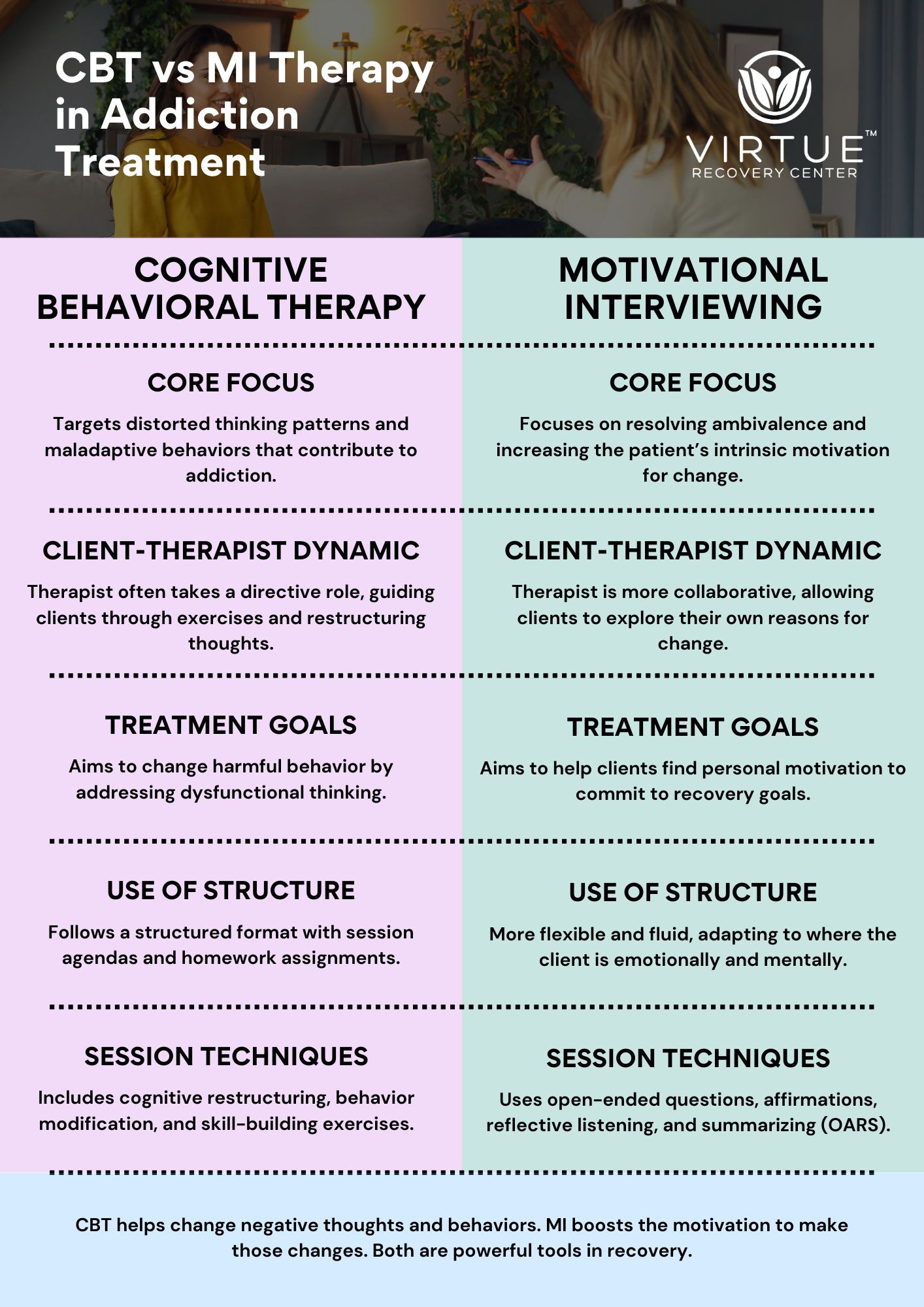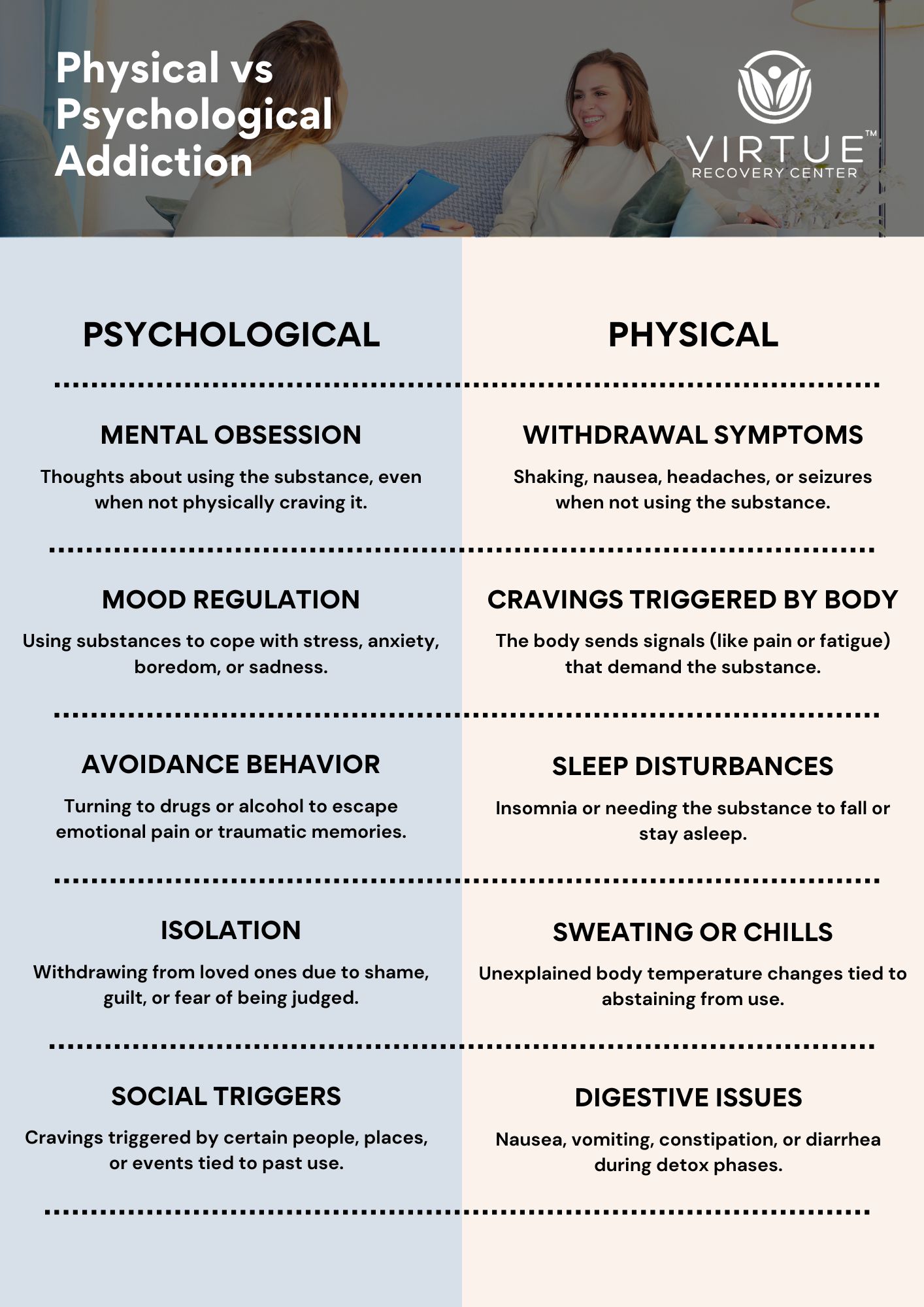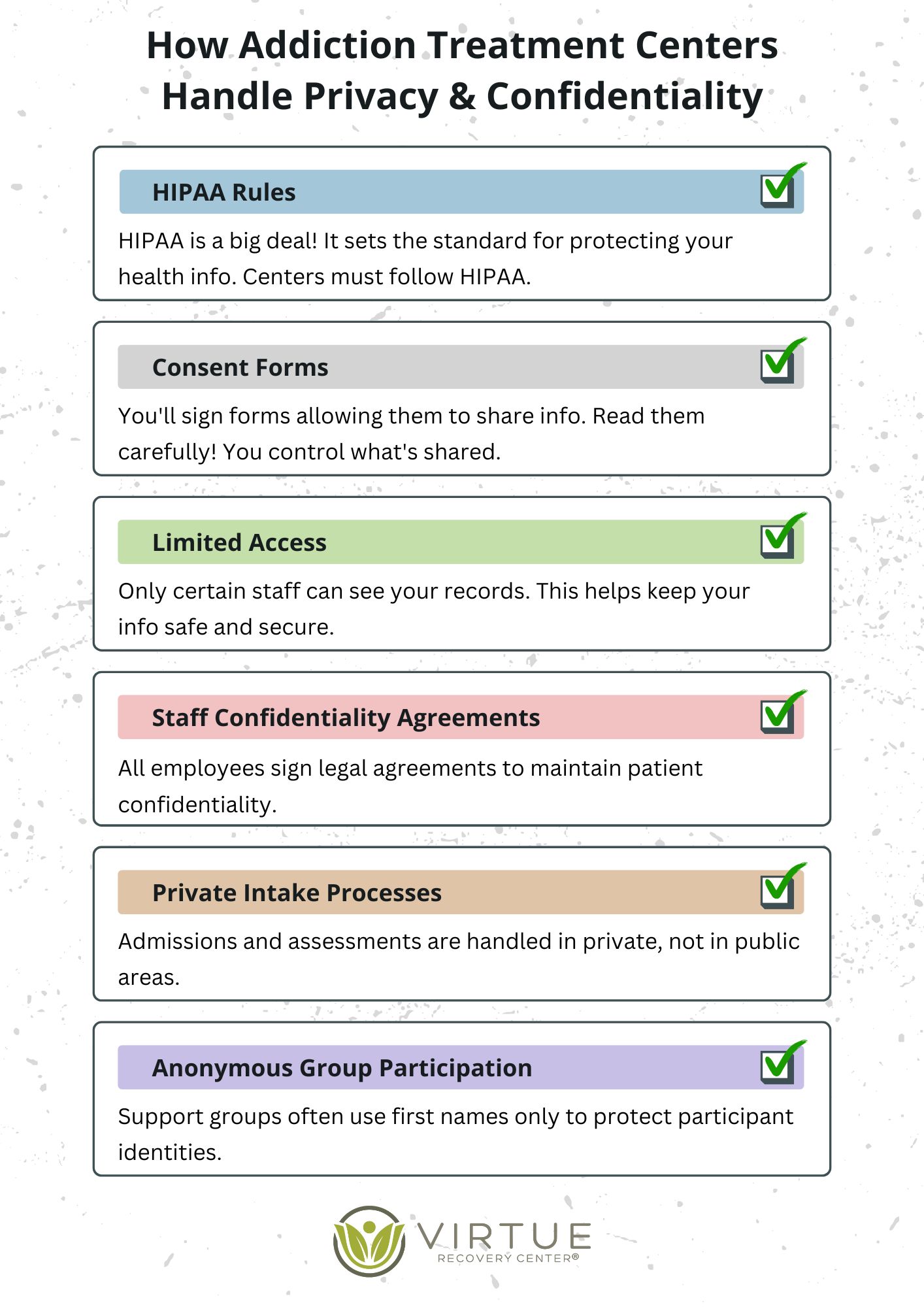How To Get Admitted Into Rehab
Once you submit your request, you’ll connect with an admissions coordinator who will answer any questions about our programs. For example, you’ll be able to ask questions about insurance coverage and explore your payment options. At the end of the session, your admissions coordinator will verify your insurance benefits and discuss payment options with you. We currently accept cash, wire transfers, credit cards, and cashier’s checks and are in-network with most major insurance providers.
The next step is to complete a phone assessment and schedule an admission time. You’ll receive a complete list of items to bring with you and items to leave at home, but you should plan to bring about 30-45 days’ worth of clothing, personal toiletries, and personal identification.
Getting Into Rehab Immediately
Recognizing the need for immediate intervention in cases of substance misuse, Virtue Recovery Center has streamlined its admissions process to facilitate quick access to rehabilitation programs. The facility provides evidence-based, trauma-informed treatment programs across several locations, such as Texas, Nevada, and Arizona. These comprehensive programs feature one-on-one counseling and group therapy aimed at addressing the root causes of addiction. They understand that time is of the essence when it comes to starting rehab, and they offer a seamless and supportive journey toward recovery.
The first step to getting into rehab immediately with Virtue Recovery Center involves acknowledging the presence of an addiction problem. This is often the most challenging part, as it requires individuals to confront the realities of their addiction. Once this step is taken, reaching out to Virtue Recovery Center can kickstart the admission process. Their team is prepared to handle emergency cases, ensuring individuals receive prompt attention. However, it’s crucial to remember that while immediate entry into rehab is a significant first step, recovery is a long-term process that extends beyond the initial treatment phase. It requires continuous effort, time, and bravery to address deep-seated issues contributing to addiction and to maintain a path of sobriety.
What is the Inpatient Rehab Admissions and Intake Process?
Inpatient treatment center admissions and intake process refer to rehab admission procedures and the rehab admission timeline for entry into an inpatient or residential program. Rehab admission requirements can vary from treatment facility to treatment facility. However, below is a general outline of some of the steps you can expect:
- Initial contact and assessment: To begin, you or your loved one must contact the facility. You’ll then undergo a rehab assessment process to gather information about your addiction history, treatment needs, medical history, and any co-occurring mental health disorder(s).
A rehab admission coordinator may ask some of the following questions and more: What was going on in your life when you began using drugs or drinking?
- How do you typically feel when you use drugs/alcohol?
- How does using affect your mental health?
- Have you ever attempted to reduce or restrict your usage?
This assessment can be done over the phone or in person. Call 866-520-2861 to get started with your free rehab assessment today.
- Verification of insurance or payment options: At the rehab center, they will check if your insurance covers the treatment and explain the payment options available. They will inform you about the treatment expenses and any financial aid programs. Additionally, they can assist you in finding alternative payment options.
- Pre-admission paperwork: Before admission, you’ll usually be required to complete various admissions forms for rehab. This admission paperwork for rehab may include consent forms, medical release forms, confidentiality agreements, and financial or insurance-related documents.
- Medical evaluation: You’ll usually be expected to undergo a thorough medical rehab evaluation process conducted by healthcare professionals. This evaluation assesses your physical health, identifies any medical conditions requiring attention, and determines if any medications are necessary for treatment.
- Orientation and facility tour: After admission, you will receive an orientation to help you become familiar with the rules, policies, and daily routines of the rehab facility. Additionally, you may have the opportunity to tour the facility to get to know the different areas, amenities, caregivers, and available resources.
- Individualized treatment plan: Based on the initial assessment and medical evaluation, a treatment team, which may include doctors, therapists, and counselors, develops an individualized treatment plan for you. This plan details the goals, treatment methods, therapy sessions, and any extra services or support needed.
- Detoxification, if needed: Detoxification from substances is typically provided as the first step in the inpatient rehab program. The rehab detox process involves medically supervised withdrawal management and support to ensure safety and comfort.
- Treatment initiation: After completing any necessary detoxification, you’ll begin participating in the inpatient rehab program. This usually involves individual therapy, group therapy, educational sessions, recreational activities, holistic treatments, and other evidence-based interventions personalized to your specific requirements.
What is the Initial Intake Assessment Process for Treatment?
The initial intake assessment process for rehab treatment refers to the initial evaluation and gathering of information about an individual seeking treatment. This assessment is crucial for understanding the needs, determining the appropriate level of care, and developing a personalized treatment plan for each person.
While the specific process may vary depending on the rehab facility and the type of treatment sought, here are some common steps involved in the initial intake assessment process for rehab treatment:
- Rehab intake interview: The process usually begins with an intake interview conducted by a healthcare professional, such as a therapist, counselor, or admissions coordinator. This interview allows you to share your concerns, provide background information, and express your treatment goals.
- Medical history: You’re typically asked to provide a detailed medical history, including any previous or existing medical conditions, medications, allergies, and relevant treatment experiences. This information helps assess your overall health and potential medical considerations during treatment.
- Substance abuse history: If seeking treatment for substance abuse, you’ll be asked about your substance use history. You may be asked questions about the specific substances you use, how often you use them, how long you’ve been using them, whether you have tried to quit before, and any negative consequences or issues related to your use.
- Mental health assessment: A mental health assessment often detects any co-occurring mental health disorder(s). This could include screening for conditions like depression, anxiety, bipolar disorder, or post-traumatic stress disorder (PTSD).
- Psychosocial assessment: A psychosocial assessment focuses on understanding the social and environmental factors that may impact your treatment and recovery. This assessment may include inquiries about family dynamics, support systems, employment status, educational background, legal issues, and other relevant aspects.
- Treatment goals and preferences: You’re encouraged to discuss your treatment goals, expectations, and preferences. This information helps align the treatment plan with your specific needs and increases your engagement and motivation in the process.
- Assessment tools and questionnaires: Rehab facilities may use standardized assessments or questionnaires to learn more about your condition, the severity of your symptoms, how well you function, and your overall quality of life. These tools give valuable information that guides the treatment plan.
- Collaborative treatment planning: The treatment team collaborates to develop an individualized treatment plan based on the gathered information. This plan outlines the recommended therapies, interventions, and services that will be used to address your needs and goals.












